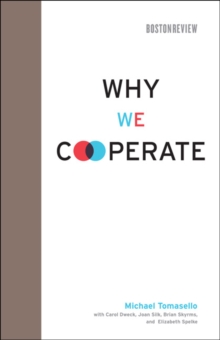
Paperback / softback
Description
A wake-up call that argues that although it may be too late to save biodiversity, we can take steps to save our ecosystems. With the extinction rate at 3000 species a year and accelerating, we can now predict that as many as half of the Earth's species will disappear within the next 100 years.
The species that survive will be the ones that are most compatible with us: the weedy species-from mosquitoes to coyotes-that thrive in continually disturbed human-dominated environments.
The End of the Wild is a wake-up call. Marshaling evidence from the last ten years of research on the environment, Stephen Meyer argues that nothing-not national or international laws, global bioreserves, local sustainability schemes, or "wildlands"-will change the course that has been set.
Like it or not, we can no longer talk about conserving nature, only managing what is left.
The race to save biodiversity is over. But that doesn't mean our work is over. The End of the Wild is also a call to action. Without intervention, the surviving ecosystems we depend on for a range of services-including water purification and flood and storm damage contro-could fail and the global spread of invasive species (pests, parasites, and disease-causing weedy species) could explode.
If humanity is to survive, Meyer argues, we have no choice but to try to manage the fine details.
We must move away from the current haphazard strategy of protecting species in isolation and create trans-regional "meta-reserves," designed to protect ecosystem functions rather than species-specific habitats.
Information
-
Item not Available
- Format:Paperback / softback
- Pages:108 pages
- Publisher:MIT Press Ltd
- Publication Date:15/09/2006
- Category:
- ISBN:9780262537438
Other Formats
- EPUB from £10.80
- Hardback from £11.75
- PDF from £23.80
Information
-
Item not Available
- Format:Paperback / softback
- Pages:108 pages
- Publisher:MIT Press Ltd
- Publication Date:15/09/2006
- Category:
- ISBN:9780262537438










